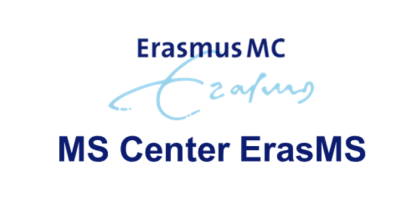Getting to know the right ‘signal’ to treat multiple sclerosis
This project aims to generate a cellular tool to better predict the course and response to treatment in MS patients by focusing on the regulation of Bruton’s tyrosine kinase (BTK) in disease-relevant immune subsets. In the past few years, the MS Center ErasMS at the Erasmus MC (Rotterdam) teamed up with Merck BV to unravel the mechanism of action and thereby optimise the usage of evobrutinib, a novel and highly potent BTK inhibitor (Montalban et al., NEJM 2019).
MS is the most prevalent inflammatory disease of the CNS, affecting 150/100,000 individuals in the Netherlands. It is the leading cause of non-traumatic neurological disability amongst adolescents, so leading to considerable and rising costs for its treatment. Fast allocation of patients to the most efficacious treatment can result in fast control of disease activity. Although allocation to the type of treatment is regularly guided by disease severity and patient preferences, there is a substantial part of trial-and-error in these decisions.
In the current project, they perform a thorough characterisation of immune cell subsets in the context of expression and function of BTK. Patients with early-phase MS will be preselected based on extremes in BTK activity in order to identify functionally altered clusters. For this, they will use state-of-the-art technologies such as spectral cytometry (n=37 markers), unique blood and postmortem brain compartments as well as advanced functional in vitro assays with and without evobrutinib. This will provide a first step to more refined and personalised treatment of MS with next-generation BTK inhibitors.
By identifying 1) disease-relevant BTKhigh B-cell subsets, 2) their selective interaction with T cells and 3) the in vitro impact of evobrutinib, they will open new doors to an easy-to-measure signature in the blood that can be utilised to foresee the efficacy of BTK inhibitors in MS and related disorders.


